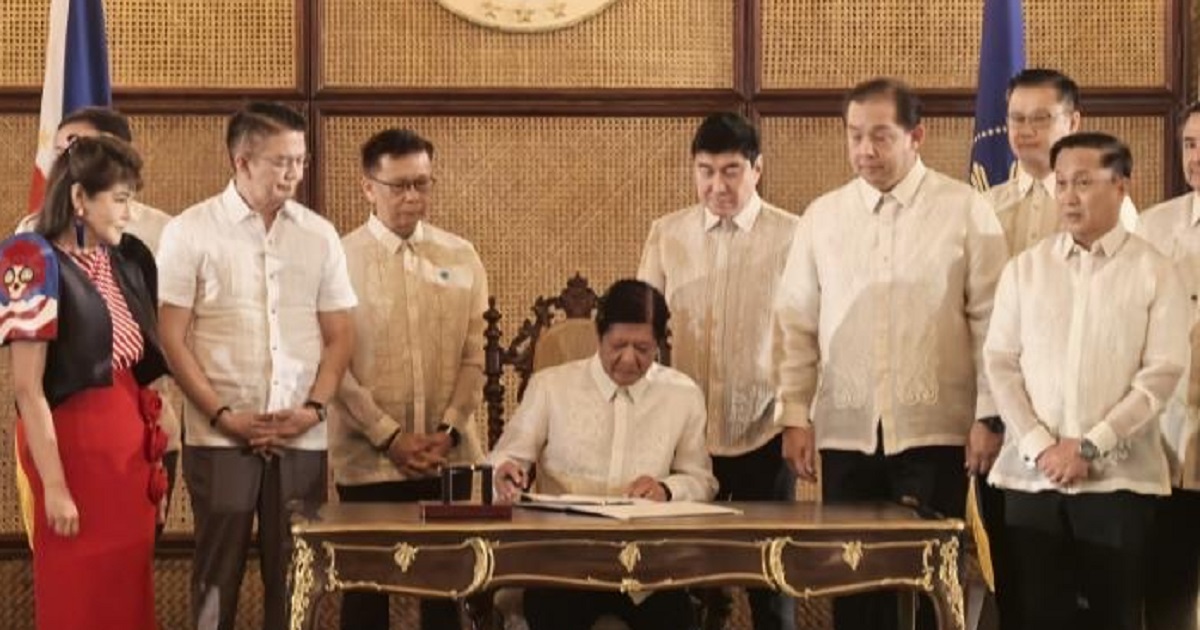President Ferdinand ”Bongbong” Marcos Jr. on Monday signed the Magna Carta of Filipino Seafarers, a priority measure of his administration.
The ceremonial signing of Magna Carta of Filipino Seafarers or Republic Act 12021 took place at the Ceremonial Hall inside Malacañang Palace.
The Magna Carta of Filipino Seafarers institutionalizes the protection of Filipino seafarers’ rights. It will also serve as a guarantee to the international community that the Philippines will comply with its obligations to international conventions.
Marcos certified the Magna Carta of Filipino Seafarers as an urgent measure in September last year.
In his speech, the President said the law was not just a tribute to Filipino seafarers for their sacrifices but also ”a call to weave together a future that they can be proud of.”
”More than helping economic — just economic growth — helping drive just economic growth, our seafarers are the heartbeat of countless Filipino families. They are, in many ways, the heroes of the modern world — linking bridges between nations, connecting markets, [and] carrying the Filipino spirit in every corner of the globe,” Marcos said.
He stressed that the Magna Carta would strengthen the legal framework to ensure that Filipino seafarers receive adequate training, secure contracts, just wages, and fair benefits.
Marcos further noted that the law would ”seamlessly align” with the Standards for Training, Certification, and Watchkeeping (STCW), as well as in the accepted global maritime labor laws.
”By creating a more robust certification process, we ensure that our seafarers are not just compliant but exceptional and equipped to meet the demands of an evolving maritime industry,” Marcos said.
The Magna Carta defines government agencies’ and stakeholders’ roles in achieving common goals to guarantee accountability, efficiency, and clarity for the protection of seafarers. It will also protect them from dangerous actions that threaten their livelihoods, such as ambulance chasing.
In a separate news release, Senate President Francis “Chiz” Escudero said the newly signed law would spell out the rights of seafarers, which include ”the right to just terms and conditions of work; right to self-organization and to collective bargaining; right to educational advancement and training at reasonable and affordable costs; right to information; the right to information of a seafarer’s family or next of kin; and the right against discrimination.”
The law will also provide Filipino seafarers with the right to safe passage and safe travel, consultation, free legal representation, immediate medical attention, access to communication, record of employment or certificate of employment, fair treatment in the event of a maritime accident.
Escudero said the law would enumerate the duties of a seafarer, such as complying with and observing the terms and conditions of the employment contract and being diligent in the performance of duties relating to the ship.


















